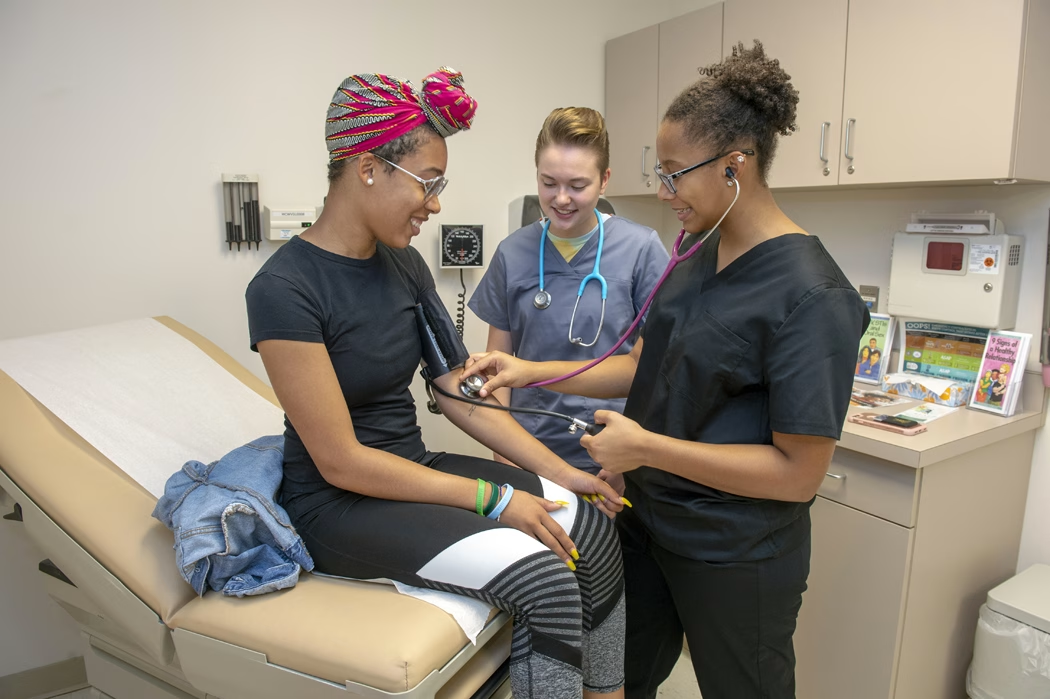Our undergraduate Bachelor of Science in Nursing (BSN) program prepares a nurse generalist with the knowledge and skills needed to work with diverse populations in various healthcare settings. The program incorporates traditional classroom methods of instruction and state- of-the-art technologies to enrich the learning process. It incorporates a variety of liberal arts and science courses with professional education and training. Nursing is an evolving field with numerous opportunities for specialized training and advanced practice in settings such as pediatrics, obstetrics, oncology, and psychiatry. This BSN degree provides a platform for graduates to expand on their knowledge and skills in order to advance their career goals.
Program Learning Objectives
The objectives of the BSN program are as follow:
1. Use the nursing process to manage care for individuals, families, communities, and populations integrating physical, psychological, social, cultural, spiritual, and environmental considerations.
2. Use the research process through translation of evidence-based findings to advance professional nursing and the delivery of health care
3. Incorporate information management and patient care technology in the delivery of quality patient-centered care.
4. Accept personal accountability for lifelong learning, professional growth, and commitment to the advancement of the profession.
5. Combine theoretical knowledge from the sciences, humanities, and nursing as a foundation to professional nursing practice that focuses on health promotion and prevention of disease for individuals, families, communities, and populations.
6. Employ inter-professional communication and collaboration to ensure safe, quality care across the lifespan.
7. Integrate ethical, legal, and professional standards into the practice of nursing.
